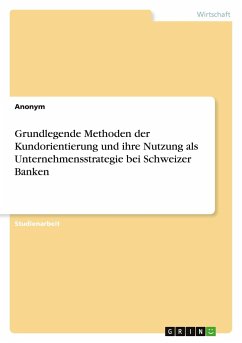Bachelor Thesis from the year 2010 in the subject Business economics - General, grade: 2.0, Baden-Wuerttemberg Cooperative State University (DHBW), language: English, abstract: The Great Recession, as the global financial meltdown has come to be called, hashad devastating effects on the global economic landscape - particularly on thebanking industry. While the big, multinational investment banks that were at theheart of this crisis were hit most severely, with players such as Lehman BrothersInc. among others disappearing from the financial landscape, retail banks -institutions primarily engaged in the standard banking business with privatecustomers - also suffered considerably from the global collapse of financialmarkets.1 Unlike their multinational counterparts, however, retail banks cannot relyon profitable mergers and acquisition activities or proprietary trading to boostincome once the economy picks up again. While the challenges created by theGreat Recession for retail banksare complex, they are not the only threat to longrunprofitability. In many markets - especially in the mature western Europeanones, other dark clouds appear on the horizon. To name only a few, plummetingsales, narrowing profit margins, consumers' lack of confidence in the bankingsystem and operational cost problems threaten retail banks in mature marketssuch as Germany.2 Postbank, a major German retail bank with a strong domesticcustomer base is one of the players that have to make strategic adjustments tocope with a changing economic landscape. But what will these strategicadjustments be - and in which priority do they need to be undertaken? Althoughliterature on the financial crisis and expected changes in banking industry isparamount, so far little attention has been given to showing how strategy in theretail banking segment in the distinct geographic location of Germany will have tolook like for a specific player in the post financial crisis era.
Bitte wählen Sie Ihr Anliegen aus.
Rechnungen
Retourenschein anfordern
Bestellstatus
Storno








